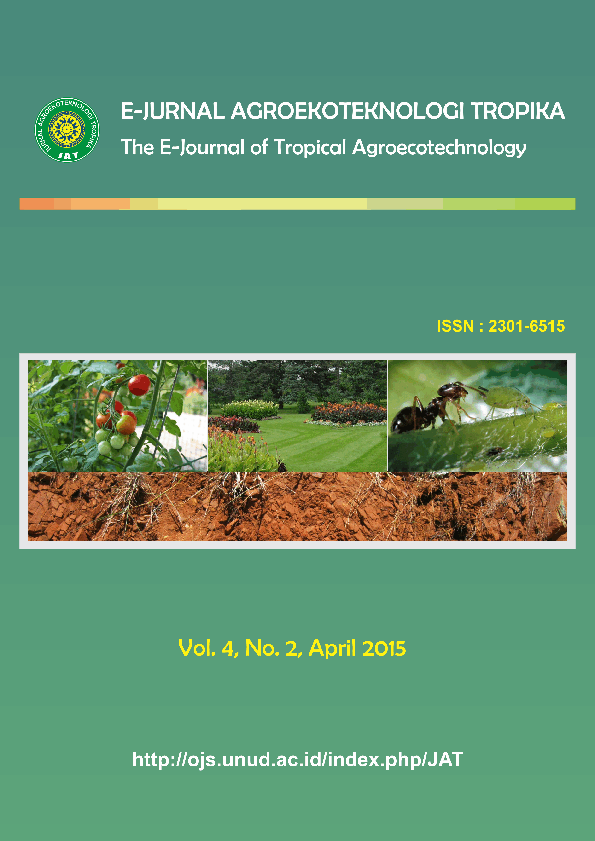Uji Antagonistik Beberapa Rizobakteri terhadap Sclerotium rolfsii Sacc. Penyebab Penyakit Rebah Kecambah pada Tanaman Kacang Tanah
Abstract
ABSTRACT
Antagonistic Test of Some Rhizobacteria Against Sclerotium rolfsii Sacc. Causes Damping Off Disease in Peanut Plant
Damping-off disease is one of the important diseases on peanut plants caused by the fungi Sclerotium rolfsii Sacc. Control which is currently only with synthetic pesticides, which many negative impacts on ecosystems and humans. The many negative effects of pesticides would require alternative more environmentally friendly control. One alternative that can be recommended is the use of rhizobacteria which acts as a biological agent.
The results showed that there were some rhizobacteria that effectively inhibit the growth of S. rolfsii Sacc. the inhibition test in vitro with the highest inhibition in the treatment of K. pneumoniae isolates KCX1GRA by 94.9% when compared with controls at 3 days after inoculation observation. Rhizobacteria filtrate tested in vitro showed that the treatment of the filtrate concentration of 10% - 20% on respectively filtrate rhizobacteria able to inhibit the growth of fungus S. rolfsii Sacc. Treatment of the filtrate rhizobacteria isolates 20M2 and KCX1GRA concentration of 20% -50% able to kill the fungi S. rolfsii Sacc., while the filtrate rhizobacteria isolates KCBS and Pi1 concentration of 30% -50% are also able to kill the fungi S. rolfsii Sacc. In the glass house study, the treatment was able to suppress rhizobacteria disease incidance in peanuts from 92% to 8% -10% compared with the control treatment was 92% at 6 weeks after planting observation.
Keywords: rhizobacteria, biological agents, and S. rolfsii Sacc.



